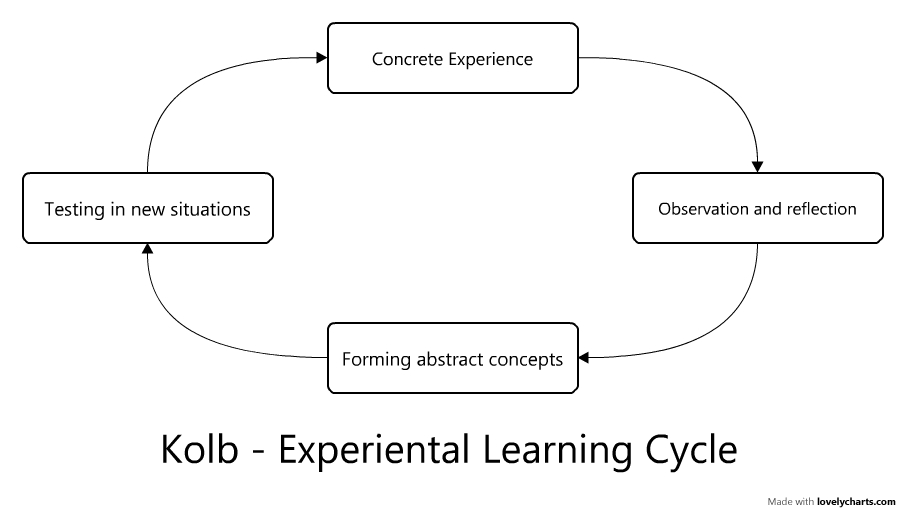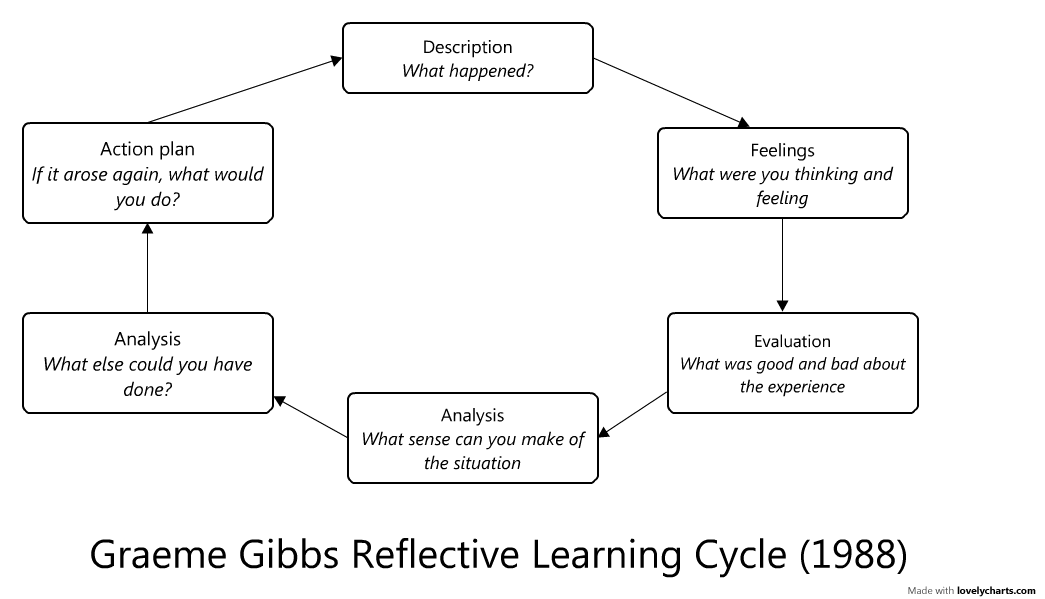There are substantial benefits in being a reflective student. Research shows that students who are reflective when learning will have a deeper understanding of their subject.
What does being reflective mean?
There is a lot of research around reflective learning.
David Kolb – Experiential Learning
David Kolb is an American educationalist whose work focuses on experiential learning. Experiential learning is learning that takes place from experiences. He developed a learning cycle that shows learning taking place initially from experiencing a situation, then reflecting on that situation, forming generalisations and concepts, and then applying the knowledge learned. (click the image to enlarge)
Donald Schön – Reflection-in-action/Reflection-on-action
Reflection does not just take place after an event. Schon explained that reflection, albeit quick and less considered reflection, can take place during an event as well.
Graham Gibbs – Reflective Cycle
Gibbs expanded on Kolb’s experiental learning cycle. He described a structured debriefing process to enable reflection. (click the image to enlarge)
Further reading:
Schön, D. (1983) The Reflective Practitioner, How Professionals Think In Action, Basic Books.
Kolb. D. A. and Fry, R. (1975) Toward an applied theory of experiential learning. in C. Cooper (ed.), Theories of Group Process, London: John Wiley.
Gibbs, G. (1988) Learning by doing: A guide to teaching and learning methods, Oxford Centre for Staff and Learning Development, . London: Further Education Unit.


